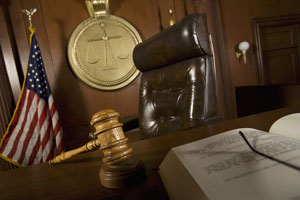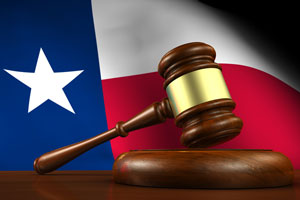A variety of expert witnesses were called by prosecutors last week in the trial of a Florida man accused of intentionally striking a New York State Trooper with his car. Experts in vehicle collisions and blood splatter took the stand as prosecutors look to show the jury that the incident was not negligent, but a willful criminal act targeting a police officer engaged in a traffic stop.
Florida Man on Trial for Fatally Striking New York State Trooper
Almont Upton, 62, of Melrose, Florida struck, and killed, NYS Trooper Christopher Skinner with his car in May of 2014. Officer Skinner was conducting a traffic stop on a New York highway when Upton hit him, leading to his arrest and first-degree murder charge. Prosecutors dropped several other charges, including assault and reckless driving, in order to focus 100{d61575bddc780c1d4ab39ab904bf25755f3b8d1434703a303cf443ba00f43fa4} of the case on earning a murder conviction, and not confuse jurors with other available charge options.
Upton’s defense team has proposed that the defendant could not have intentionally murdered Trooper Skinner due to a mental disease or defect which impaired his decision making at the time. Although the defense has not expanded on its defense yet, prosecutors attempted to counter the argument that Upton did not act intentionally by calling expert witnesses to explain how the nature of the collision with Trooper Skinner suggested malice and intent necessary for a murder conviction.
Expert Witnesses Testify in Almond Upton Murder Trial
Last week, prosecutors called New York State Police Collision Reconstruction Expert Travis Webster to take the stand and explain the evidence found at the scene of the collision. Webster, a state investigator who focuses on accident reconstruction, evaluated the evidence and provided testimony which supported the prosecution’s theory that Upton acted intentionally. According to Webster, Upton was traveling at 93 miles per hour when he hit Trooper Skinner, and had his accelerator pedal “100 percent to the floor.” Further, Webster’s accident reconstruction expert analysis revealed that the defendant never activated his brakes, which suggests Upton did not demonstrate any effort to avoid hitting Skinner with his pick-up truck. Finally, Webster concluded that there was nothing wrong with Upton’s truck which would have prevented him from steering out of the way or applying the brakes.
New York State Police Sr. Investigator Steve Anderson was also called to the stand as a blood stain analysis expert witness. Investigator Anderson walked the jury through the blood stains on the hood and windshield of Upton’s truck which was caused by a direct strike on Trooper Skinner. Anderson also pointed out blood stains on the tailgate of the vehicle, supporting the prosecution’s contention that Upton struck Skinner at a high rate of speed with intent to hit and kill him. Anderson concluded his expert testimony by explaining that he oversaw the autopsy of Trooper Skinner and collected his clothing from the scene in order to obtain evidence for trial.
Upton’s attorneys did not aggressively question the prosecution’s expert witnesses, choosing instead to dispute the motivation and mental state of the defendant rather than the circumstances of the fatal incident.
Prosecution Presents Case for Murder while Upton Defense Prepares Insanity Plea
After presenting its accident reconstruction and blood splatter expert witnesses, prosecutors argued that Almond Upton’s actions demonstrated “precision driving” and sufficiently reached the level of intent necessary to earn a first-degree murder conviction. Prosecutors argued that the testimony from their accident reconstruction expert shows Upton aimed to kill Trooper Skinner with his car while the officer was distracted and vulnerable before he later sideswiped two other vehicles as he attempted to make his high speed escape.
Defense attorneys representing Almond Upton will take their turn as the trial continues this week, and will undoubtedly call a mental health expert witness who will testify to the defendant’s mental state at the time of the accident. The legal standard for insanity typically requires a defendant prove he did not understand or appreciate the consequences of his actions while committing the crime, and the evidence from the state’s accident reconstruction and blood splatter experts which suggests Upton acted with malice makes the defense strategy a longshot, regardless of future expert testimony supporting mental defect.











